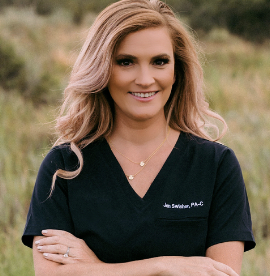SNOT this Season RSV

If you’re on the frontlines of the emergency department, you’ve probably noticed the uptick in respiratory infections and viruses in the early kick-off to 2023’s respiratory season.
As we brace for fall and winter, it looks like we’ll have additional tools in our arsenal to decrease complications and hospitalizations from respiratory syncytial virus (RSV): adult vaccines and a monoclonal antibody for all infants.
Three different vaccines will be available this season to combat viral respiratory symptoms and threats:
- An updated Covid booster
- The annual influenza vaccines
- Two adult RSV vaccines
Additionally, there will be another RSV monoclonal antibody option for our tiniest patients. Phase 3 trials and regulatory approval are underway for maternal vaccines and passive immunity protection for newborns.
Let’s dive into these tools now.
Pediatric RSV Prevention
RSV is the leading cause of pediatric hospitalizations in an infant’s first year of life. Historically, RSV prevention has been aimed at select vulnerable populations. However, a majority of pediatric hospitalizations due to RSV are in otherwise healthy patients, without preexisting conditions. More studies have shown increased risk of future wheezing illnesses, namely asthma, in young children who contract RSV in their first year of life.
Until now, there was only a monoclonal antibody for infants and toddlers at high-risk for severe RSV - palivizumab (Synagis). Palivizumab is a monthly monoclonal antibody for children under 24 months old with conditions increasing their risk for severe RSV (think cystic fibrosis).
However, last month, the Centers for Disease Control and Prevention also approved nirsevimab (Beyfortus) for all infants under 8 months, born during or entering their first RSV season. Nirsevimab provides protection for the duration of an average RSV season (5 months). It can also be used for infants 8 to 19 months of age who are entering their second RSV season and are considered high-risk for severe RSV. While it's not a vaccine, it is an RSV F protein‑directed fusion inhibitor that binds to the fusion protein on the surface of the RSV virus. Nirsevimab passed through three clinical trials in order to garner FDA approval.
Adult RSV Prevention
The CDC estimates 60,000-160,000 older adults with higher risk factors are hospitalized due to RSV and account for 6,000-10,000 deaths annually in the United States. According to the CDC, adults at the highest risk for severe RSV illness and other respiratory illnesses are the elderly, adults with chronic heart or lung disease, those with weakened immune systems, or those living in close contact within nursing homes or long-term care facilities. RSV can also exacerbate chronic conditions in the elderly such as COPD, CHF, and asthma.
An RSV vaccine will be available for at-risk adults this fall. In May, the FDA approved Arexvy and Abrysvo for the prevention of lower respiratory tract disease due to RSV in patients over 60 years old. Ultimately, the CDC agreed with the FDA decision’s in July and recommends the option for vaccinating against RSV in those over 60, with a shared clinical decision-making strategy.
We witnessed a huge surge in RSV last season, most likely due to post-pandemic ramifications. So predicting this year’s trajectory won’t be simple, but we can be reassured that there are multiple new preventative tools in our arsenal to help with patient care. This is particularly valuable as a vaccine for those most at-risk, infants, and targeted antiviral options still do not exist. Thus we rely solely on preventive measures and supportive care. Additional measures for infection prevention that at-risk and high-risk individuals can implement are continual disinfection of objects and surfaces and consistent hand washing.
Ultimately, preventing RSV and its complications will have a positive impact on emergency medicine in all healthcare settings. Whether it helps us see fewer cases in the immediate future, manage cases on an outpatient-basis, or potentially create fewer future asthma-related complications - we can all get behind getting ahead of RSV.
Learn more about the latest RSV prevention tools in our free Peds RAP segment, "Nirsevimab: The Latest Tool to Prevent RSV," on Spotify.
More information:
https://www.cdc.gov/mmwr/volumes/72/wr/pdfs/mm7229a4-H.pdf
https://www.ncbi.nlm.nih.gov/pmc/articles/PMC9377028/
https://pubmed.ncbi.nlm.nih.gov/32546584/
https://www.cdc.gov/ncird/surveillance/respiratory-illnesses/index.html
https://www.cdc.gov/surveillance/resp-lens/dashboard.html
https://www.cdc.gov/rsv/research/rsv-net/overview-methods.html
Practice-Changing Education
Experience education that goes beyond theory. Explore Hippo Education’s offerings below.


.png)